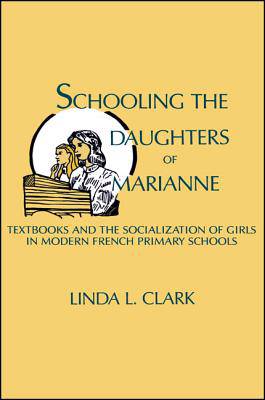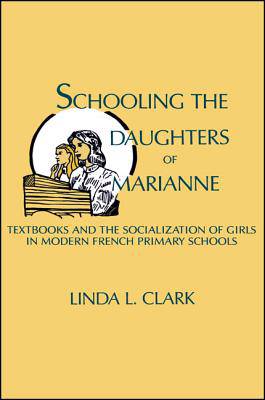
- Retrait gratuit dans votre magasin Club
- 7.000.000 titres dans notre catalogue
- Payer en toute sécurité
- Toujours un magasin près de chez vous
- Retrait gratuit dans votre magasin Club
- 7.000.0000 titres dans notre catalogue
- Payer en toute sécurité
- Toujours un magasin près de chez vous
Schooling the Daughters of Marianne
Textbooks and the Socialization of Girls in Modern French Primary Schools
Linda L ClarkDescription
This first book-length study of girls' primary education in France gives a concrete picture of how Frenchwomen were, and are, prepared for their roles in society.
Until the 1960s, the primary school provided the only formal education for the majority of French children. Long recognized as a major inculcator of patriotic and moral values, the French primary school also played the vital role of preparing girls for their expected adult lives.
Linda L. Clark describes in detail this socialization process. By analyzing a wide variety of documents from 1870 to the present-textbooks, curriculum materials, students' notebooks, examination questions, inspectors' reports, and teachers' memoirs-she has uncovered not only what was taught to girls, but the social and political assumptions that lay behind the primary school's messages about feminine personalities and activities.
The book goes on to establish the relationship of feminine images to important aspects of French social, economic, and political life. A chapter on the preparation of girls for the world of work, for example, reveals the discrepancy between formal teaching about "femininity" and women's actual participation in society.
Spécifications
Parties prenantes
- Auteur(s) :
- Editeur:
Contenu
- Nombre de pages :
- 224
- Langue:
- Anglais
- Collection :
Caractéristiques
- EAN:
- 9780873957878
- Date de parution :
- 30-06-84
- Format:
- Livre relié
- Format numérique:
- Genaaid
- Dimensions :
- 152 mm x 229 mm
- Poids :
- 489 g

Les avis
Nous publions uniquement les avis qui respectent les conditions requises. Consultez nos conditions pour les avis.






